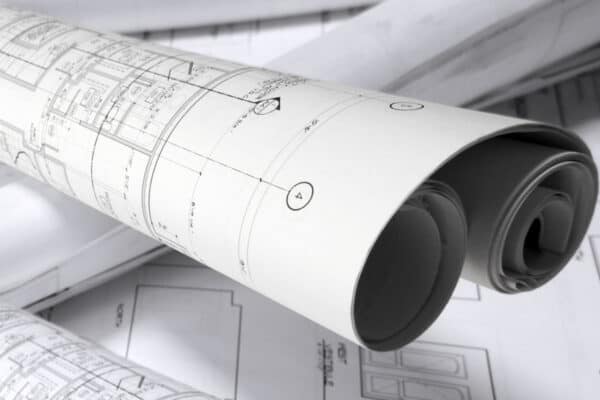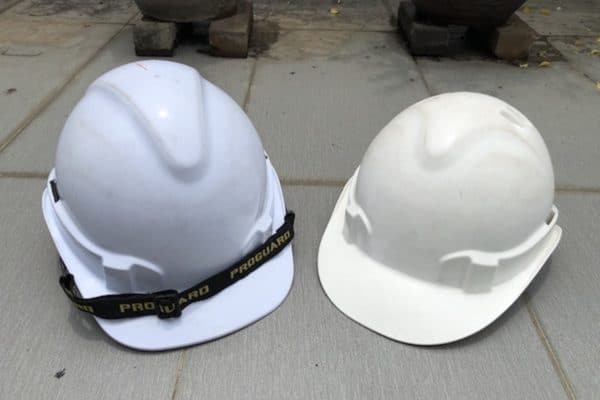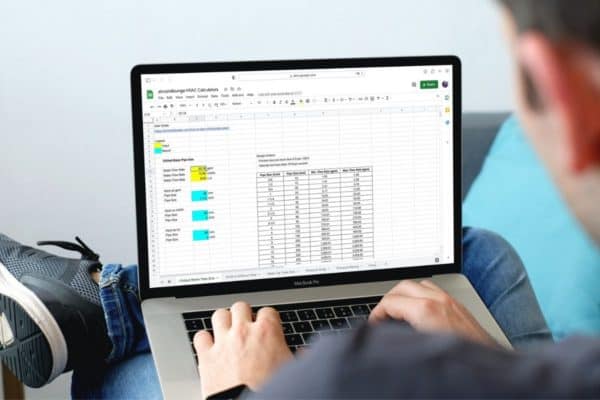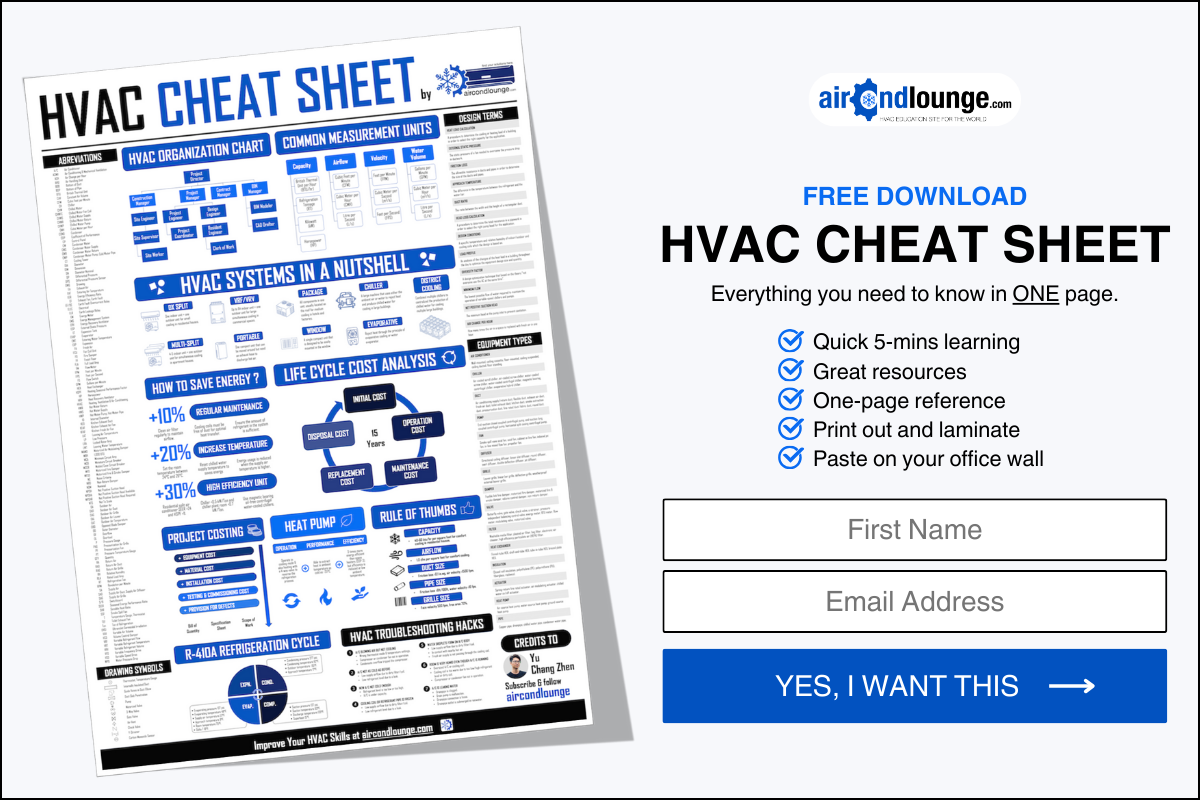HVAC Project Engineer Interview Questions & Answers
As a fresh graduate, interviews can be intimidating especially when you know nothing about the HVAC industry. We all hope to land a job in the first interview and thus, we always try to give our best shot. However, simply giving answers you get from the internet to the interviewers is not enough.
I started my first job as a project engineer. A few years later, I became a project manager. So, I have a pretty good idea of what interviewers (project managers) want when they ask a potential project engineer questions during an interview.
Getting to know what the interviewers want is the key to being successful in every interview. After all, project managers just want to hire the right person for the job.
The 3 Standard Interview Questions
If you did some Google search, you most likely already found some of the common interview questions and the standard answers. So, I’ll give you the answers that I would accept if I’m hiring a project engineer.
Q1 – Tell me about yourself
You’ll most likely get this as the first or second question in your interview. This question applies to basically any interview, not limited to HVAC project engineers only.
If I’m asking you to tell me about yourself, what I actually want to know is the way you speak and communicate. Do not follow what you’ve seen in movies, they are not real. In reality, we just want you to speak as humans do.
“When you see the interviewers as friends, they will treat you as a colleague.”
Be real, be yourself and be confident. When I ask you to tell me about yourself, I expect you to summarize valuable information that is relevant to you working as a project engineer. For instance, you should start with your full name and give me a short name or nickname that you’re comfortable with me calling you from now on.
Next, you should jump into the second most important thing which is your educational background or qualification. For instance, where is your college or high school, what is your major and what did you do for the thesis or final year project?
Then, I expect you to introduce more of your personalities such as your hobby, your family and what interests you or what did you do during your free time. This part is particularly important but I often see fresh graduates uncomfortable sharing.
When I’m interviewing you, I don’t know much about you except what you’ve written in your resume or CV. So, we should establish a surface kind of relationship where I know you are a normal person, doing normal stuff or an exceptional person, doing cool stuff.
If my candidate is someone who likes video shooting or basketball or hiking or has any sort of hobby, my impression is that this person is energetic and is able to hang around with other people because as a project engineer, you’ll be dealing a lot with other people in the construction site as well as in the office.
So, my advice is that you speak comfortably like you’re speaking with your family and friends. Treat us, the interviewer as a person, not a boss or some fearsome artificial intelligence robots.
Q2 – What do you know about our company?
If you sort of “be a friend” with the interviewer during your first encounter, you probably won’t receive any further standard interview questions like this because we, as interviewers, ask you this kind of question is to find signs of good behaviour and good communication skills.
When I ask you what do you know about our company, my point is not about how much you’ve done research on the company but rather, how you react and answer the question. I’m constantly seeking signs of good behaviour and good communication skills.
Speaking clearly and confidently like how you talk to your friends and family is the key, again. The principle behind interview questions for fresh graduates is that we don’t know much about you and hence, we use these questions to try to understand you as much as possible.
However, some interviewers do expect you to do some research about the company in order to show them how much do you care about the job including me.
So, my advice is that you at least need to know what is construction projects, what is HVAC and list a few past projects done by the company which you can easily find the answers on the company’s website, assuming they have a website.
Otherwise, here is a few keynotes to give you a head start:
- This company should be a contracting company.
- This company usually gets HVAC construction projects in the form of contracts.
- This company most likely supply and install HVAC equipment for buildings.
- This company does air conditioning for heating and cooling as well as ventilation for smoke extraction and pressurization.
Q3 – Why do you want to work here?
You may be asked this question anytime during the interview. However, it is more common to be asked last during an interview. Again, the interviewer is trying to see what is your reaction to such a question.
If I’m the interviewer, I wish to see your passion and excitement to be hired as a project engineer. I want to know why you want to work in the company. Of course, you should not tell the interviewer that there is no other position open and you had to apply for this company.
Every company must have something that draws attention. If you have no reason to work in the company, you won’t last long and the interviewer knows about this.
While you’re researching the company, find something interesting about the company that you feel good to talk about it during the interview. For example, the company may be awarded for a few mega-projects, or one of the directors was interviewed by a famous podcaster.
As a fresh graduate, the best asset you have is energy, passion and interest. Interviewers want to hire passionate people and people who have a great interest in many things. If my candidate is sluggish and looks unprepared, I won’t want to proceed further.
Other than that, you also can talk about the working environment, what do you feel about working in the office or you always want to work in the construction site. However, you need to have a certain level of honesty. I understand that we sometimes need to go a bit further to sound convincing but not too far from reality ok?
Technical HVAC Questions
If the interviewer has an interest in you, the interviewer may ask you further on some technical HVAC questions to rule out candidates who don’t have relatively strong interpretation and critical thinking skills.
Here are some of the common basic HVAC questions that interviewers might ask you and a short answer to each question:
| Question | Answer |
|---|---|
| What is HVAC? | HVAC stands for heating, ventilation and air conditioning. |
| How do air conditioners work? | Air conditioners use refrigerants to transfer heat from indoor to outdoor via the refrigeration cycle |
| What is ventilation? | Ventilation is about replacing indoor air with outdoor air. |
| What is a heat pump? | A heat pump is similar to an air conditioner but with a heating function. |
| Do air conditioners produce oxygen? | Air conditioners by themselves don’t produce oxygen. But, if they are connected to a ventilation fan, they can bring in oxygen from the outside. |
| What is a chiller? | A chiller is a giant air conditioner that produces chilled water which is then used to absorb heat from the room. |
| What air conditioning is used for? | Air conditioning is used for human comfort, controlled environments such as semiconductor manufacturing and surgical operation. |
| What is a compressor? | Compressor is one of the major components of an air conditioner that increases the pressure and temperature of the refrigerant. |
| What is relative humidity? | Relative humidity is the current amount of moisture in the air relative to the amount of moisture in saturated air. |
Conclusion
When you are interviewed for a project engineer position, most interviewers including myself are looking for people who are confident, have good communication skills, have good behaviour and attitude as well as good interpretation and critical thinking skill. As a bonus, we wish the candidate is independent and willing to learn as much as possible.
If you’re still feeling unprepared or you need more HVAC knowledge, feel free to surf around my website. I got tons of interesting HVAC facts, guides and real-life experience written in the form of blog posts. Besides, you can subscribe to get notified of new posts for your journey as an HVAC project engineer.
If you have anything to add (or ask) about this topic, leave a comment down below!









